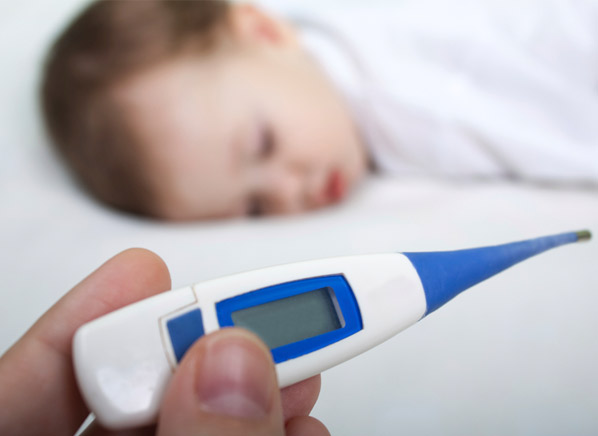With cold and flu season peaking, the recall Thursday of 24 varieties of Triaminic and Theraflu Warming Relief syrups due to faulty child-resistant safety caps serves as a reminder to parents that cough and cold medications can be dangerous for kids. They haven't been proven to provide a benefit either, so parents (and their children) are better off first trying non-drug treatments that are safer and can make your child feel better.

Cough and cold medicines account for 11 percent of fatal poisonings, such as unintentional ingestions or overdoses, in children age five and younger, according to a 2012 report by Safe Kids Worldwide. Even when used intentionally, those medications can cause serious side effects in kids, so our medical advisers recommend that they not be given to children under 6, and they should be used with caution, if at all, in 6- to 12-year-olds.
Instead, try our long recommended proven home remedies if you have a child sick at home with a cold:
● Keep your child warm and dry in inclement weather, which can actually cut the chance of catching a cold in the first place.
● Give your child chicken soup, which can help with his or her congestion and sore throat, plus lessen the feeling of being sick.
● Ask your child to cough or sneeze into tissues, and dispose of them after using.
● Dole out honey (one-half teaspoon to children ages two to five, 1 teaspoon to children 6 to 11, and 2 teaspoons to those ages 12 to 18), or give your child hard (sugarless) candy to suck on to help reduce coughing--but don't give lozenges to young children or honey to infants younger than one year.
● Show your child how to gargle with warm, salty water, which can ease a painful throat.
● Remind your child to wash his or her hands often, which can reduce the likelihood of transmitting infections.
● Make sure your child gets plenty of rest.
If you decide to give your child an over-the-counter cough and cold medicine, avoid multisymptom remedies, whose mix of ingredients can raise the risk of side effects and overdoses, especially if you take them with other drugs. Instead, choose over-the-counter meds by active ingredients and buy single-symptom formulas. Always follow directions as to how to use the medicine, and do not give a child any medicine that is labeled for adults only. When pouring medicine for a child, only use the measuring device that comes with the medication--not household teaspoons or other items, as they are often different sizes.
Finally, be sure your child is vaccinated against seasonal influenza. The CDC recommends the flu shot for everyone 6 months or older.





